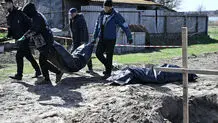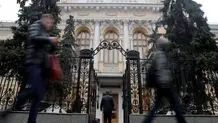Kyiv citizens warned not to return due to revenge airstrikes
After two weeks of relative calm in the city, sinking of Moskva warship leads to retaliatory missile attacks.

THE GUARDIAN: After two weeks of relative calm in the city, sinking of Moskva warship leads to retaliatory missile attacks.
While life seemed to be slowly returning to the streets of Kyiv, a fresh series of Russian airstrikes came as a reminder this weekend that the war in the Ukrainian capital is far from over.
Following two weeks of relative calm, on Friday the Russian forces destroyed a plant which allegedly produced one of the missiles used to sink the Moskva warship in the Black Sea. The attack was the most significant revenge strike by the Kremlin after the sinking of Russia’s flagship vessel.
Then, on Saturday, Russian rockets allegedly hit a military hardware factory in the capital’s Darnytskyi district. “They are making us pay for destroying the Moskva,” Andrei Sizov, the 47-year-old owner of a nearby wood workshop, told AFP.
The recent strikes on the Ukrainian capital are among the first since invading Russian forces began withdrawing from regions around Kyiv. The city, day by day, had been attempting to return to normal. Many shops were beginning to reopen and citizens were venturing back on to the streets.
Before the invasion, the greater Kyiv area had a bustling population of 3.5 million, and the streets were buzzing with singers and bars. But after the first bombardments, the capital began to look like a ghost town.
By the end of March, half of the Kyiv population had moved to the west. For weeks the outlying towns of Irpin and Bucha had been occupied and bombed, with thousands of civilians killed and hundreds buried in mass graves. But at the beginning of April, Russian forces began to withdraw.
However, as thousands of citizens who had left after the invasion were preparing to return, the mayor, Vitali Klitschko, on Saturday warned that the renewed airstrikes meant it was not the moment to return.
“Once again, I appeal to everyone: please do not ignore the air alarms!” said Klitschko on his official Telegram channel. “And those Kyivites who left earlier and are already going to return to the capital, I ask you to refrain from this and stay in safer places.”
The sudden twist of events is inexorably linked to the destruction of the jewel of the Russian fleet by Ukrainian forces during a combat operation in the Black Sea on Wednesday – a blow to Vladimir Putin’s war plans and his military’s prestige. At first, the Kremlin tried to downplay the incident, claiming an accident had caused a fire onboard. Then it said the damage had been contained and the ship was being towed to port in Sevastopol. Finally, late on Thursday, the ministry announced that the ship had sunk in “stormy seas”.
The Kremlin has not given any details on possible casualties among the 510 crew of the Moskva and has not released any photographs of the destroyed ship or its survivors, but on Russian television, hosts and pundits spoke in vehement terms about wiping out “Ukraineness” after the destruction of the flagship.
But it is not only Kyiv paying the price for the destruction of the Moskva and for the Russian humiliation. All of Ukraine is bracing itself for revenge attacks from Russia after the “significant and symbolic” sinking of the flagship.
Air raid sirens sounded overnight in Kharkiv, Zaporizhzhia, Donetsk, Kryvyi Rih and Dnipropetrovsk. Explosions were also heard in the western city of Lviv, while the war intensifies in the east, with Russia sending additional troops to try to drive Ukrainian forces out of Donbas.
At least two Ukrainians were killed overnight in Russian airstrikes on cities in the east of the country. Officials reported fatalities in Poltava, Severodonetsk and Lysychansk. Russia said it also struck a military vehicle repair factory in Mykolaiv, close to the southern front.
President Volodymyr Zelenskiy has said up to 3,000 Ukrainian troops have been killed since Putin ordered the invasion of Ukraine on 24 February, with no total yet available for civilian casualties.
Meanwhile, the fate of Mariupol hangs by a thread. For weeks, the port city, in south-eastern Ukraine, has been facing a humanitarian catastrophe, besieged by Russian tanks advancing towards the centre, hour after hour, one blast at a time, razing everything in their path. The battle for its control is continuing. If Moscow captures Mariupol, home to 400,000 people before the invasion, it would be the first big city to fall.
“The situation is very difficult” in Mariupol, Zelenskiy told the Ukrainska Pravda news portal on Saturday. “Our soldiers are blocked; the wounded are blocked. There is a humanitarian crisis … Nevertheless, the guys are defending themselves.”
آخرین اخبار News را از طریق این لینک پیگیری کنید.




